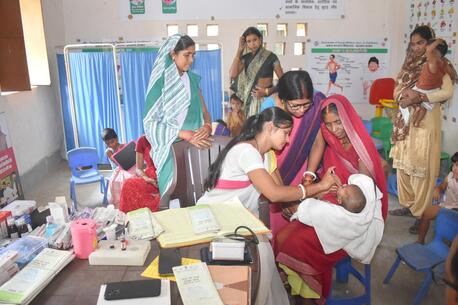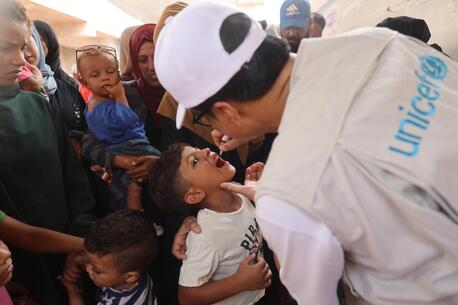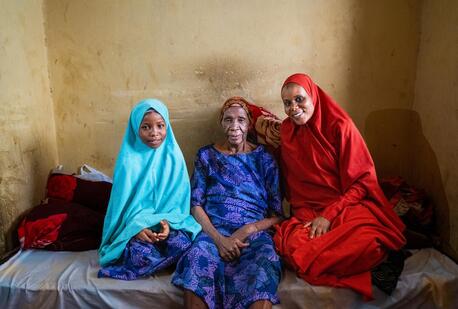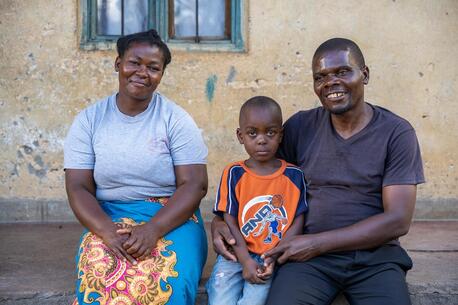
Malaria Vaccines Save Children's Lives in Malawi
In central Malawi, health worker James Chinomba sees firsthand how vaccines provided by UNICEF and partners are keeping young children safe from malaria.
Malaria starts with a mosquito bite and can end in hospitalization and even death, if not treated promptly. It's one of the world’s most lethal diseases, killing nearly half a million children under age 5 every year in Africa.
As a health worker at the Chileka Health Center in central Malawi, James Chinomba has witnessed the devastating impact of malaria on young children in his community over the past 15 years. Now he's seeing firsthand the difference a malaria vaccine is making at work and in his own home. Watch the video.
A series of three shots reduces symptomatic malaria cases by 75 percent
Since 2019, health centers in Malawi have been part of a pilot program for a malaria vaccine supported by UNICEF; Gavi, the Vaccine Alliance and the World Health Organization. Children are given four jabs from the age of 5 months to their final dose at 23 months. The program has been shown to reduce symptomatic malaria cases by 75 percent during the 12 months following a three-dose series.
Chinomba and his wife, Eveness, and their four sons live in an area surrounded by dams, rivers and swamps, ideal breeding grounds for mosquitoes and malaria.
"My other children, who are older and missed this vaccine, were getting sick all the time," Chinomba says. "Probably every two months, my children got sick. At the hospital, the malaria test was positive."
It's a different story for his youngest son, Wisdom, whose birth coincided with the arrival of the vaccine. "He hasn't contracted malaria for a year," Chinomba says proudly.
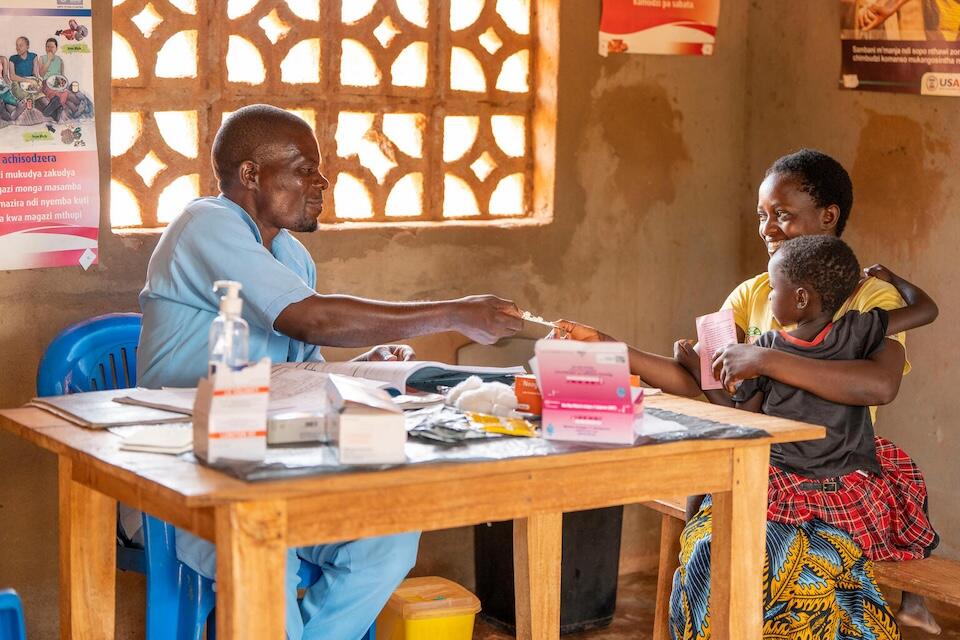
Community mobilizers help spread the word: the new malaria vaccine keeps children healthy
To encourage parents to get their children vaccinated, health workers turned to community and religious leaders, who helped spread the word about the vaccine's safety and efficacy.
Over 2 million children in Ghana, Kenya and Malawi have received the malaria vaccine, resulting in a remarkable drop in child mortality.
"We still have deaths, but incomparable to the times before the vaccine," says Chinomba. "The vaccine should keep coming because the generation is growing. Because people have embraced it and made it part of them."
So far, eight countries have rolled out the WHO-approved malaria vaccine as part of childhood immunization programs in 2024: Benin, Burkina Faso, Cameroon, Ghana, Kenya, Liberia, Malawi and Sierra Leone.
As the world's largest single buyer of vaccines,UNICEF works to ensure that all children – no matter who they are or where they live – have access to the vaccines they need to survive and thrive. Please donate.
HOW TO HELP
There are many ways to make a difference
War, famine, poverty, natural disasters — threats to the world's children keep coming. But UNICEF won't stop working to keep children healthy and safe.
UNICEF works in over 190 countries and territories — more places than any other children's organization. UNICEF has the world's largest humanitarian warehouse and, when disaster strikes, can get supplies almost anywhere within 72 hours. Constantly innovating, always advocating for a better world for children, UNICEF works to ensure that every child can grow up healthy, educated, protected and respected.
Would you like to help give all children the opportunity to reach their full potential? There are many ways to get involved.



